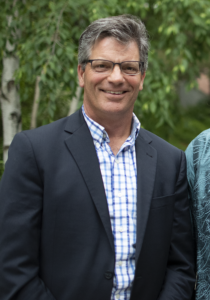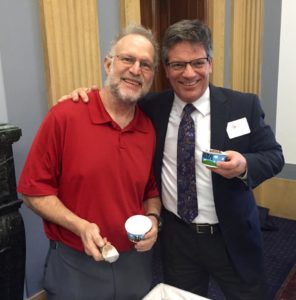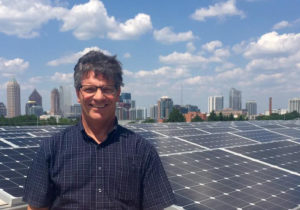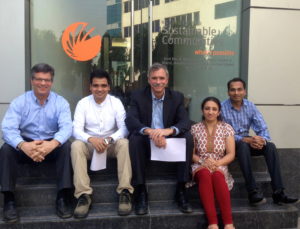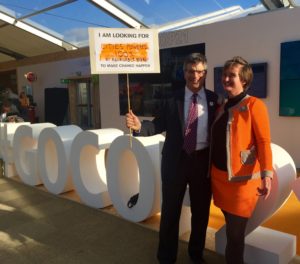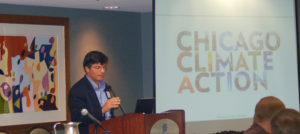After a total of 15 years with ISC, Steve Nicholas is moving on to lead the climate, clean air and sustainable practices program at the Northwest Seaport Alliance, a joint venture of the marine ports in Seattle and Tacoma that constitutes the fourth-largest seaport in North America. There, Steve will be working to improve air quality and quality-of-life in the central Puget Sound region, and achieve carbon neutrality by 2050. In advance of his departure, we asked him to share some of the key lessons he’s learned during his work with ISC to tackle climate change in cities throughout the United States.
When I left my job as the City of Seattle’s first sustainability director back in 2008 to come build, launch, and lead the Institute for Sustainable Communities’ US Program, the urban climate movement was in its infancy. Most cities had yet to “get it”: that global warming was in fact an urgent local priority, responsibility, and opportunity. And virtually all of the nonprofits and foundations who were active in “the climate space” at that time were focused primarily on international pacts and federal policies — creating a “cap-and-trade” system, in particular.
But while those intensive, well-intended, and quite large investments of time and money — heartbreakingly — went next to nowhere, the urban climate movement took off. Today, countless cities in the U.S. and abroad, amply supported by organizations such as the Urban Sustainability Directors Network and the C40 Climate Leaders Group, are taking serious and systematic climate action. Just about every national environmental organization — from the Natural Resources Defense Council to the World Wildlife Fund — has an urban climate program now. And many more (though still not enough) foundations are supporting local climate leadership.
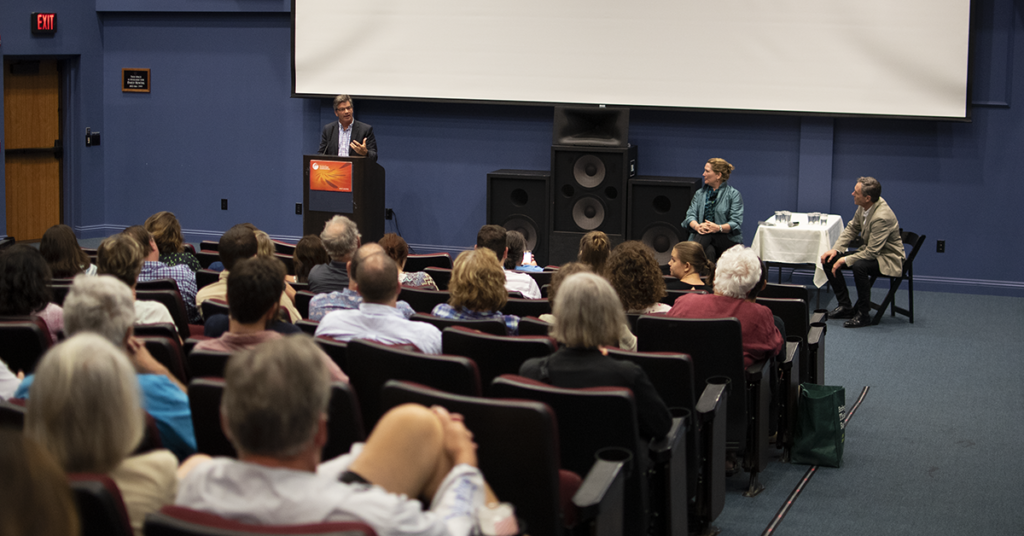
All of this adds up to tons of progress, and I’m proud of the role that ISC has played — and will continue to play — in making that happen.
And yet, we’re collectively failing. Miserably. Global climate pollution continues to increase, steadily and seemingly inexorably. We need to be in drawdown, but instead we’re in uptick. While some early-adopter cities are making good progress, in many places more than a decade of focused attention and investment is barely keeping pace with growth. Meanwhile, climate disruption has metastasized, from emerging concern to urgent problem to full-on emergency, to the point where an increasing number of people-in-the-know are coming to the painful conclusion that it’s time to begin preparing for the worst.
Personally, I’m not ready to throw in the towel. I remain hopeful that we will bend this curve, for the same reason I’ve come to peace with the aging process: it’s better than the alternative. But there’s no question in my mind that time is running out; we need to do more — and better, and faster. It’s still true as it was back in 2008, that we need stronger and more cohesive national and international action – in particular price signals that favor the production and consumption of good stuff (e.g. renewable energy, mass transit, electric vehicles, etc.) over bad stuff (e.g. fossil fuel-burning power plants and gas guzzlers, etc.). But we need more and better local action, too. In particular, in 2020 and beyond I hope to see much more of these three things:
- Metro-scale collaboration: Individual cities, towns, and counties — no matter how committed — can’t solve the climate crisis. Simply put, they lack the capital and the control necessary to transform systems to deliver zero-carbon human development: energy; water; housing; land use; transportation; and economic development. Take the City and County of San Francisco, for example. They have reduced climate pollution by 36 percent since 1990, while the population was growing by a whopping 166 percent. But the city represents less than two percent of the climate pollution produced in the State of California, while the Bay Area as a whole represents nearly 20 percent. This gap will grow even wider in the future, with nearly 90 percent of the projected growth in the region by 2030 expected to occur outside of the city. This is why a growing number of metropolitan regions across the U.S., many inspired by the Southeast Florida Regional Climate Compact, are pooling their human, financial and political capital in service to bigger, better, and faster regional climate solutions;
- Community-driven, equity-centered solutions: We won’t be successful as long as climate solutions and social justice/racial equity solutions are treated as separate, even competing interests. They are not. Nor will we meet the climate challenge by leaving out and behind an increasingly large percentage of the population: people of color. In an “all hands on deck” situation such as this, why leave so much talent and tenacity on the table? We need more community-led, equity-advancing climate action. Check out the Walnut Way Conservation Corporation in Milwaukee, for example; their work at the intersection of climate and racial justice solutions is especially hope-inspiring for me, because it is an effective collaboration between city government and community-based leaders and organizations that delivers climate solutions that also create economic opportunity for low-income people of color. Bingo!
- Courage behind convictions: If the metrics for climate success were number of pledges signed, resolutions passed, and press releases issued, we’d be in much better shape than we are. Conviction without the courage to act accordingly may be worse than doing nothing, because it begets false hope and cynicism. To our public- and private-sector leaders: it’s not enough to sign declarations and pick the “low-hanging fruit”; you also need to make the politically and/or financially harder choices. Increasing housing density, even in historically single-family neighborhoods, comes to mind. And to all of us: remember that elected officials tend to follow more than they lead. It’s not enough to attend rallies and bemoan the lack of political leadership in harshly worded letters-to-the-editor. We also need to be willing to create, or at least accept, change in our own lives and in our own backyards. Don’t just demand climate action — take it!
Steve Nicholas asks former colleagues and contacts to stay in touch with him at: sspiro.nicholas@gmail.com


